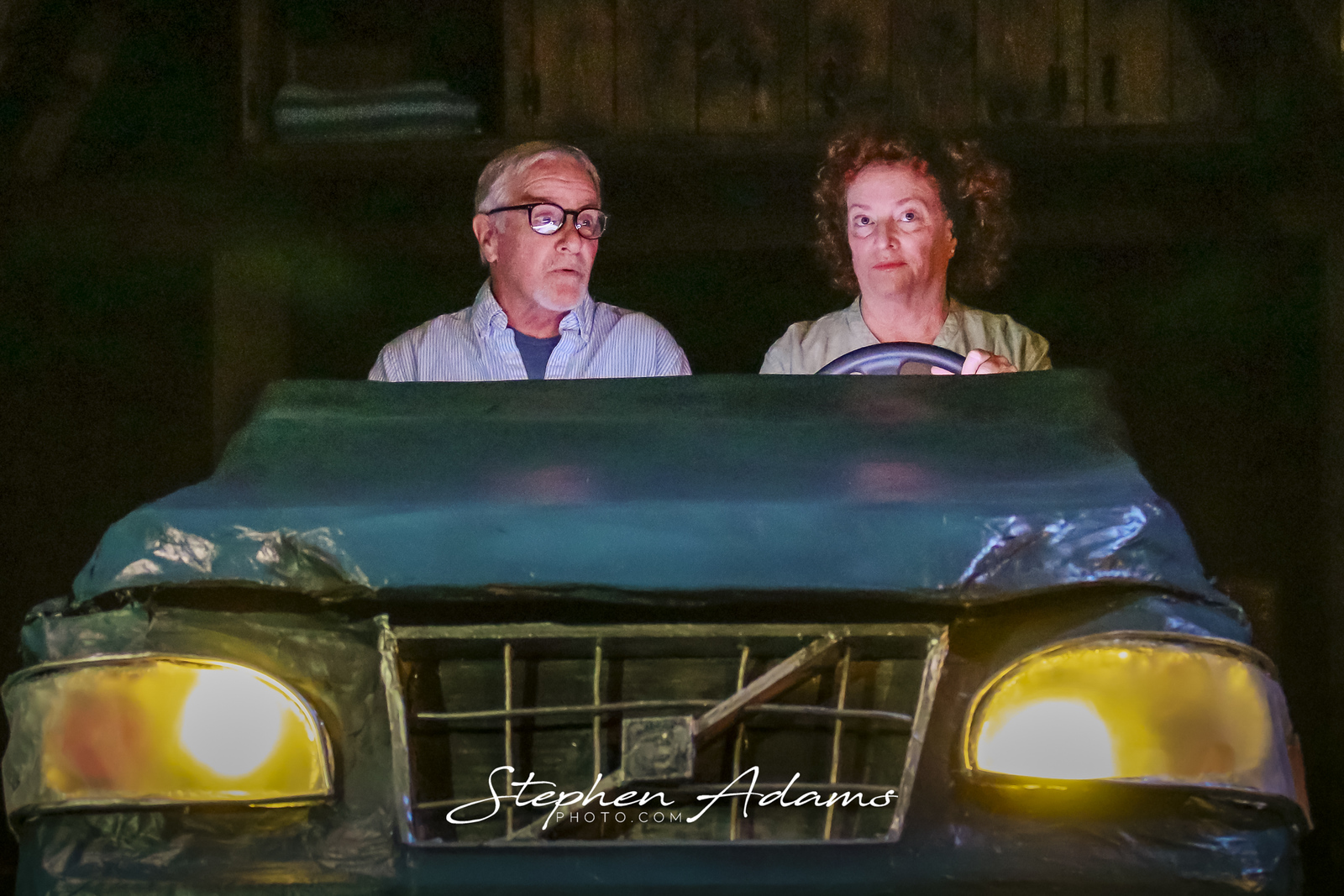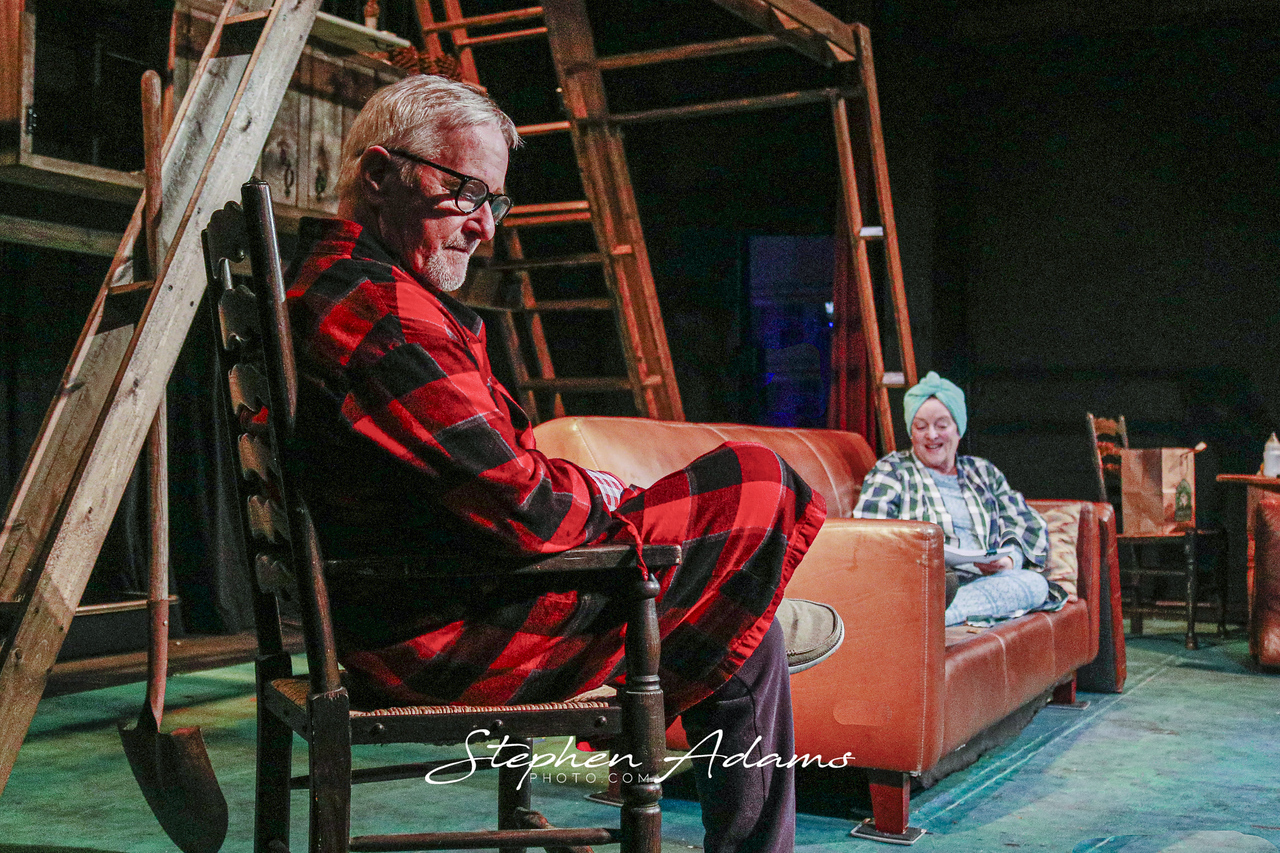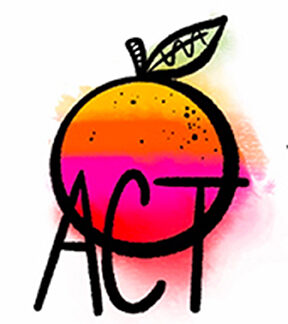By Sami Zahringer, April 11th 2024


Ken (left, played by Taylor Kasch) and Cynthia (right, played by Cynthia Killion)
both before and after their whole bizarre and gristly conflict with a stray deer. Photos by Stephen Adams.
Cynthia and Ken, a pair of middle-aged, upper middle-class empty nesters are driving to their holiday cabin in the Poconas. Ken, a thoroughly self absorbed novelist, is conducting a monologue while Cynthia drives quietly, occasionally rolling her eyes. It is evident that this trip is his idea and he hopes to romantically rekindle their marriage. However, Ken makes it clear he still plans to spend some time working at the cabin with vague, lazy suggestions of what Cynthia might do to fill her time. Cynthia seems ambivalent and we start to wonder if this will be much of a change in dynamic for her at all.
Suddenly, they hit a deer. The animal is clearly suffering and, while Ken wants to put it out of its misery and continue to the cabin, Cynthia insists on taking it with them, naming it Doe, and trying to nurse it back to health. At the cabin, it becomes clear that the deer is beyond rehabilitation but Cynthia persists and a certain note of derangement enters the play. The cabin set is wonderfully designed to concentrate the action for a cast of two, at times making the the scene claustrophobic and the drama more intense. Its reaching, triangular set artfully manages to evoke both the isolation of the cozy cabin and, with its high ladder shelves and casually slung geometry, the sort of intellectual Upper East Side life they come from.
The couple bicker sardonically in a “Oh, I’m wrong again”; “You win again!” type of way, like a worn, weary dance. We begin to see the psychological damage his overbearing narcissism and her aggressive selflessness have done to each other and, maybe more interestingly, to themselves over the years. But they are far from home right now, they have killed a beautiful living thing, and as the cracks open we see more and more.
It isn’t difficult to view the deer as a metaphor for the couple’s relationship. For sure they are pecking away at the carcass of their marriage with pointed little jibes that are by turns martyrish, passive aggressive, petty, and pointed. But it gets more complicated than that when the deer starts talking, first to Cynthia, but in Ken’s voice. Cynthia is already engaged in the unhinged task of nursing a dead deer but how far is she unraveling? Then Doe starts to talk to Ken, in Cynthia’s voice. Is he unraveling too? Now, as both their reliability is called into question, you find yourself second guessing the entire situation. Going into the second act the temperature is dropping and we have no idea where this is going but we are well primed for it to be bizarre. It is always fun when the ending of a play is a surprise.
Aaron Mark’s play is fantastic source material for Kasch and Killian – married in real life – and the leavening humor in the production largely comes from their interplay together and their acting skills separately: Ken’s hilarious narcissistic cluelessness, and Cynthia’s droll litany of complaints about Ken as she relates them to the deer are both memorable elements. There is even a little slapstick that somehow works in this almost sinister production. As in many good plays, the audience’s sympathies shift from character to character as they become more annoying, or poignant, or hostile, or disturbing. This both dramatically and morally unmoors us and the play deepens to its darkest point, taking us with it.
The balance of darkness and humor is right and there is much to mull over about what we’ve just seen when we leave the theater, including the question – what HAVE we just seen? Unpacking that comprises a good deal of the satisfaction to be had from Deer. I’m glad OACT gambled on this bold, edgy and relatively new play. It has paid off well with thoughtful execution by the cast and crew, Director David Henderson, and Producer Rosie Gordon.

